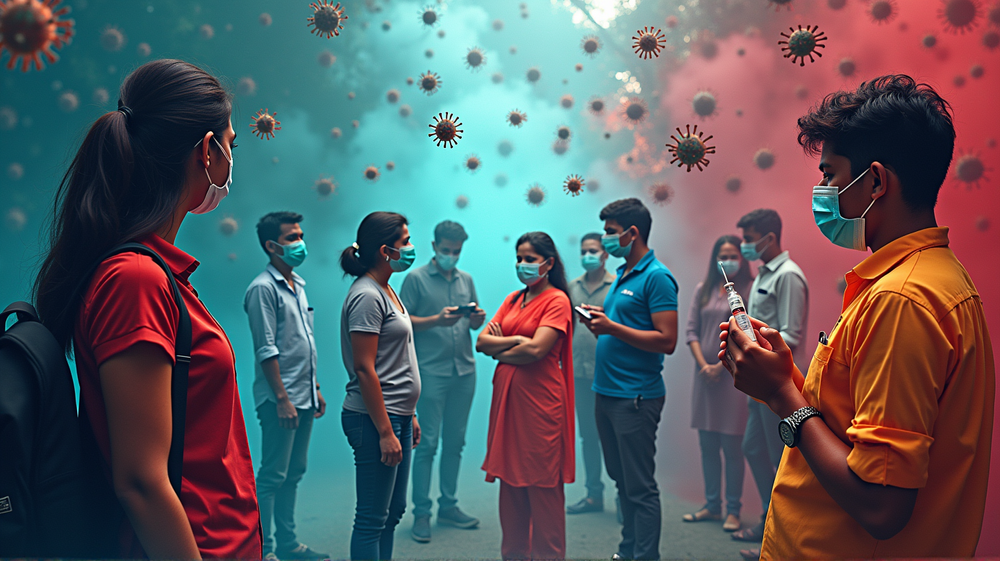In a world where the specter of COVID-19 never truly receded, India finds itself grappling once again with new variants JN.1, LF.7, and NB.1.8.1. The Indian SARS-CoV-2 Genomics Consortium (INSACOG) records show a concerning rise in cases even as symptoms remain mild. But is that enough to lower our defenses?
The Current Scenario
India’s active cases have reached 6,491 as reported by the Union Health Ministry, with states like Kerala and Gujarat experiencing significant spikes. The variant JN.1 dominates the landscape, igniting discussion on the nation’s preparedness. Despite hospitalizations being low, prompt action and increased surveillance have been initiated, ensuring that healthcare systems are not caught off-guard again.
The Importance of Preparedness
Dr. Sylvia Karpagam accentuates the need for perseverance and vigilance in the face of this yet significant health challenge. As respiratory viruses are often prone to seasonal surges, the question remains: How prepared is India for a possible flare-up? The call for a sustained, sophisticated public health response becomes louder, not only to fend off COVID-19 but to lay the groundwork for future public health challenges.
Vulnerable Populations at Hazard
With variants operating under the radar, certain groups remain exceptionally vulnerable. Dr. Karpagam highlights the elderly, the immunocompromised, and pregnant women as groups that require close monitoring and special care. Precautionary measures such as mask-wearing and avoiding crowded spaces should once again become a priority.
Containing the Virus
The Indian government is stepping up; mock drills and the availability of medical essentials such as oxygen tanks and isolation beds are being rigorously assessed. According to the Frontline Magazine, State-directed initiatives are in place to enhance testing facilities, particularly in rural areas where healthcare access issues remain pronounced.
Combating Misinformation
As the virus evolves, so does misinformation. Vigilance is required to counteract dubious claims about vaccine effectiveness and symptoms. Dr. Karpagam and WHO expert Dr. Soumya Swaminathan emphasize communicating clear guidelines and accurate information to prevent unnecessary panic and speculative treatments.
A Global Perspective
Globally, the WHO is keen on strategic realignments; focused vaccination campaigns and responsive communication are central to its latest guidance documents. The provision of evidence-based management strategies aims to sustain normalcy without resorting to disruptive lockdowns.
The Road Ahead
In a landscape where pandemics may become recurrent, India’s grasp on public health preparedness will profoundly impact not just its citizens but offer a blueprint for the global community. The balancing act between vigilance and normalcy will define the future as India confronts these new variants with resolve and innovation.
Will the lessons learned guide us towards better pandemic resilience? Only time will tell.













